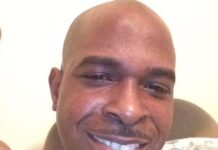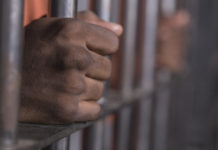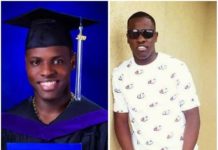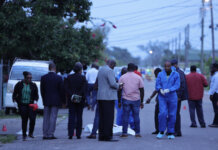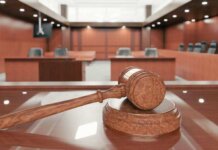
Nassau, BAHAMAS-A Supreme Court judge declared a murdered man’s sons as his heirs after finding that his will was a forgery.
Justice Indra Charles determined that the signature on the will, which left all of Lester Adderley Jr’s assets to his father, Lester Adderley Sr., was forged.
As a result, the judge dismissed an application for Michael Adderley to probate his brother’s estate.
The purported will named him as executor of his estate.
Adderley Jr. was murdered at Freeport, Grand Bahama on August 23, 2015.
Lakisha Hield, who had twin boys with Adderley, contested the will on behalf of their children. She argued that Adderley died without a legal will—therefore his sons should inherit.
Adderley Sr. was also murdered on January 13, 2019 while the lawsuit was still pending.
In support of her challenge to the will, Hield called document examiner and handwriting expert Dr. Laurie A. Hoeltzel.
She carried out a scientific comparison of Adderley’s signature on cheques and the one on the will.
Dr. Hoeltzel concluded, “The questioned signature of Lester Eugene Adderley is a forgery due to multiple different letter formations, spelling, pressure, slant and overall appearance.”
Too many inconsistencies
However, in a witness statement, Michael Adderley said that the signature on the will appeared to be his brother’s.
He said brother’s signature was not consistent. Sometimes, he added Jr and other times he would just sign as Lester Adderley, he claimed.
The court pointed out that Michael Adderley’s claims were unsubstantiated.
The defense called Joan and Ricardo Rahming, who said that they witnessed the will.
In his witness statement, Adderley Sr. said that he and his son were business partners in Lux Investments. His son owned 50 percent of the shares in the company.
He alleged that in 2013 they visited a lawyer to draft mutual wills for all the directors of the company. But he didn’t learn that the will wasn’t executed until his son’s murder.
However, Adderley Sr. allegedly said that Attorney Rawle Maynard later informed him that his son had left a will.
Justice Charles said she did not believe the witnesses for the defense because she found too many inconsistencies in their testimony. She said, “credibility is at the heart of this issue.”


